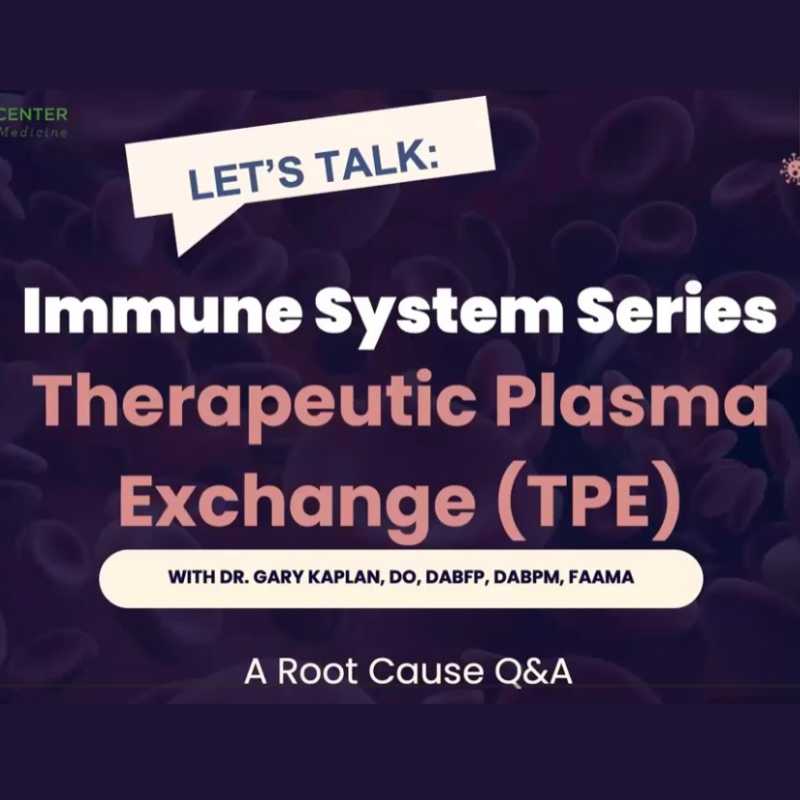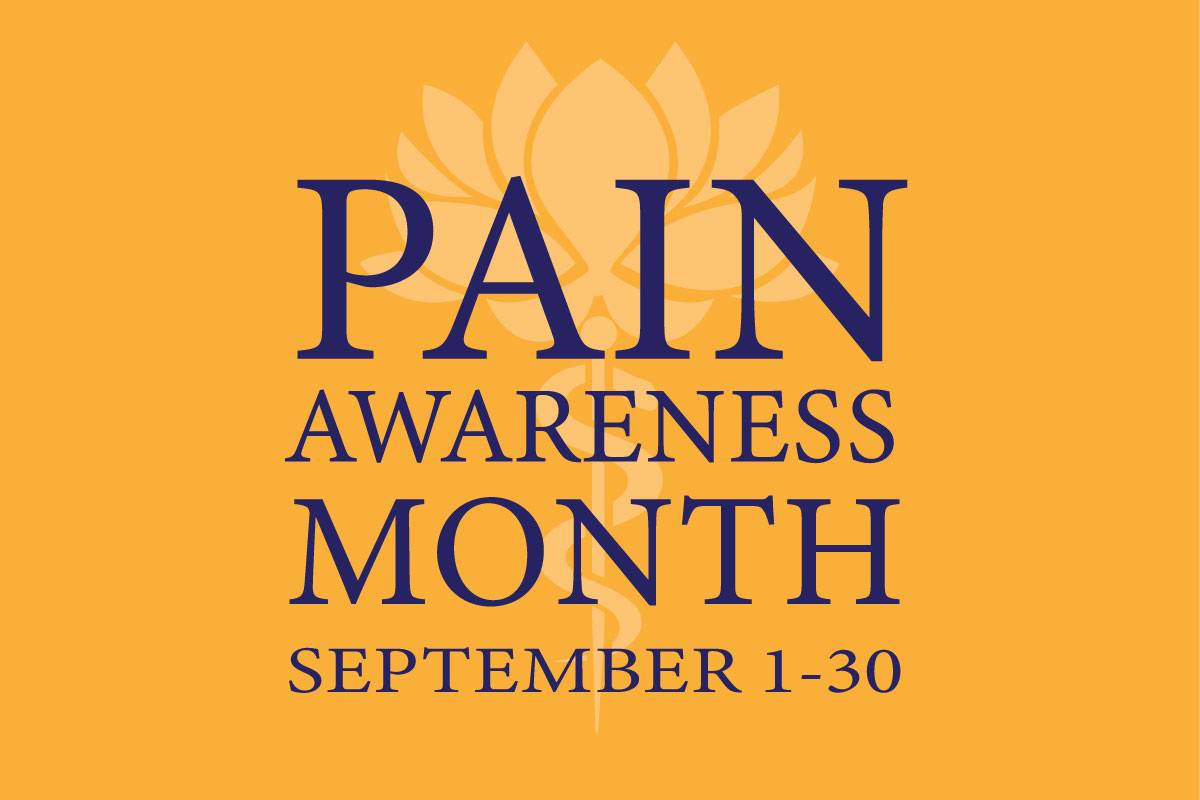
5 Ways We Can Keep Your Immune System Strong
December 10, 2025/by Kaplan Center
Want to Take Your Workout to the Next Level Next Year? These Tips Can Help
December 8, 2025/by Kaplan Center
Dr. Kaplan’s Dos and Don’ts of the Holiday Season
December 3, 2025/by Kaplan Center
Let’s Talk Webinar – A Root Cause Q&A
December 2, 2025/by Kaplan Center
Navigating Holiday Meals with Gut Issues: Simple Tips for a Comfortable Season
December 1, 2025/by Chardonée Donald, MS, CBHS, CHN, CNS, LDN
Craniosacral Therapy for TMJ | Say Goodbye to the Daily Grind
November 19, 2025/by Patricia Alomar, M.S., P.T.
From Compassionate Care to Personal Healing: A Letter to My Patients
November 18, 2025/by Kaplan Center
8 Steps to a Healthier Gut—and a Longer, Healthier Life
November 18, 2025/by Kaplan Center
Mid-Life Irritability & Fatigue Improved by Hormonal Balancing
November 13, 2025/by Lisa Lilienfield, MD
From Challenges to Change: Dr. Kaplan on Healthcare’s Biggest Challenges
October 29, 2025/by Kaplan Center
Overlooked Dangers of Mold Exposure and How to Stay Safe – Dr. Kaplan Talks to WUSA9
October 27, 2025/by Kaplan Center
Let’s ‘Fall’ Into Wellness: A Nutritionist-Approved Immune-Boosting Recipe for Cold and Flu Season
October 13, 2025/by Chardonée Donald, MS, CBHS, CHN, CNS, LDN
PANS/PANDAS – When Sudden Symptoms Signal Something More
October 9, 2025/by Kaplan Center
Beating Burnout, A Nutritionist’s Perspective
October 1, 2025/by Chardonée Donald, MS, CBHS, CHN, CNS, LDN
3 Things That Can Happen After Stopping GLP-1s
September 11, 2025/by Chardonée Donald, MS, CBHS, CHN, CNS, LDN
What Families Need to Know About COVID and Flu Season
September 3, 2025/by Kaplan Center
September is Pain Awareness Month
September 1, 2025/by Kaplan Center
Dr. Kaplan Spoke to Northern Virginia Magazine About COVID, Flu, and Immunity — Here’s What You Should Know
August 14, 2025/by Kaplan Center
“Why Do I Feel Like Crap?”: The Overlap Between Long COVID and Perimenopause
July 30, 2025/by Kaplan Center
Why People Are Turning to EMDR (and Why You Might Want to Too)
July 23, 2025/by Kaplan CenterAre you looking to improve your overall wellness?
Personalized care you can trust.
Our integrative, non-surgical treatment approach is highly successful in maintaining wellness and also treating chronic pain and illness. For more than 30 years, we have delivered superior, cutting-edge health care in the Washington, DC area.
QuickLinks
Contact Information
Tel: 703-532-4892
Fax: 703-237-3105
6829 Elm Street, Suite 300
McLean, Virginia 22101
Map It
Hours of Operation
Mon – Thu : 8 am – 5 pm, ET
Fri : 8 am – 12 pm, ET
Good Morning Washington Visits the Kaplan Center! Part 2
/in Chronic Fatigue, Conditions, Long Covid, Videos, Wellness/by Kaplan CenterGood Morning Washington‘s Roxanne Strouk, returned to the Kaplan Center to speak to Dr. Gary on the challenges many patients face when they are affected with chronic conditions.
Significant overlaps in symptoms like fatigue, brain fog, and pain—across multiple illnesses, like ME/CFS, fibromyalgia, and autoimmune diseases, can lead to misdiagnosis or a delayed diagnosis leaving patients without clear answers or effective treatment plans. In addition, a shortage of healthcare providers who specialize in complex, chronic illnesses, can result in fragmented care and limited access to knowledgeable clinicians. As a result, many patients endure prolonged suffering and diminished quality of life without a clear path to recovery.
Dr. Kaplan explains how the Kaplan Center’s integrative and functional approach 1—allows for a more comprehensive understanding of each patient’s health, and 2—focuses on identifying and treating the root cause of illness, both of which often leads to more sustainable recovery.
We are here for you, and we want to help.
Our goal is to return you to optimal health as soon as possible. To schedule an appointment please call: 703-532-4892 x2
Good Morning Washington Visits The Kaplan Center! Part 1
/in Long Covid/by Kaplan CenterGood Morning Washington’s Roxanne Strouk came to the Kaplan Center to talk about how integrative medicine provides a comprehensive and patient-centered approach to treating chronic conditions like Long-COVID, Lyme disease, sleep apnea, and chronic fatigue, that aren’t easily treated by conventional medicine alone.
Learn how integrative medicine incorporates the best elements of conventional and alternative medicine to address physical symptoms and the root cause(s) of pain and illness, including problems of the mind and spirit that may be contributing to the disease process.
We are here for you, and we want to help.
Our goal is to return you to optimal health as soon as possible. To schedule an appointment please call: 703-532-4892 x2
Which Respiratory Infection Do You Have?
/in COVID-19, Wellness/by Kaplan CenterAs we head into the winter months, it’s not uncommon to see with patients diagnosed with at least one but sometimes multiple respiratory infections; the challenge is determining if you have COVID-19, flu, a cold, RSV, bacterial infection or just allergies. With each of them having similar symptoms, a thorough evaluation, testing and proper treatment is going to be very important. In addition, keeping up on available vaccines is vital.
The common cold
Many may get the common cold during the winter months and for the majority of cold-sufferers rest, fluids, and over-the-counter medications and supplements are enough to help with symptom management since antibiotics are not helpful. Symptoms tend to last 7-10 days.
Flu
Flu season runs from October to May. We recommend that you get vaccinated against the flu without delay if you haven’t done so already. Between 3 and 11% of US residents, up to 41 million people, come down with the flu each season, with approximately 200,000 hospitalizations. In most cases, resting, drinking plenty of fluid, Vitamin C, and OTC symptom relief medication are the best treatments. If symptoms become more severe, we recommend seeking medical treatment immediately. For those who are 65 years and older, those with certain chronic conditions, children younger than 5 and pregnant women, early treatment with antiviral medications may be necessary to prevent serious flu-related complications and hospitalization. The medication works to reduce the severity of symptoms, shorten the duration of the illness and prevent complications such as pneumonia. Testing to determine if you have the flu can now be done at home with newly approved home tests that are available for purchase at a pharmacy. Testing can also be done at an urgent care or ER. Most symptoms last 4 to 7 days but the cough and fatigue might continue for a couple of weeks.
Link to further information about flu: https://www.mayoclinic.org/diseases-conditions/flu/symptoms-causes/syc-20351719
RSV
We are hearing a great deal about Respiratory Syncytial Virus (RSV) on the news, but RSV is not a new virus. While it usually presents like mild cold symptoms in healthy adults and older children, in newborns, infants, immunocompromised or older adults, RSV can be life-threatening. In May 2023, the CDC approved the first vaccine to prevent the RSV infection for adults over 60 years old and it has since approved additional vaccines for pregnant women and infants.
In infants and young children, symptoms include congestion, runny nose, cough, low-grade fever, sore throat, loss of appetite and irritability. When the infection spreads to the lower respiratory tract, symptoms increase and can include difficulty breathing, severe cough, shallow rapid breathing, and bluish color to the skin. These symptoms are considered an emergency and you should seek medical attention immediately. Symptoms, when not severe, tend to last 7-14 days though the cough may linger.
Link to further information about RSV: https://www.mayoclinic.org/diseases-conditions/respiratory-syncytial-virus/symptoms-causes/syc-20353098
COVID-19
COVID-19 is still very much in the forefront of our minds as we continue to learn more about the SARS-CoV-2 virus and its long-lasting impact on a significant population who become infected. We recommend that as soon as you are feeling any respiratory symptoms, such as nasal congestion or sore throat, that you first test for COVID. COVID tests are readily available for purchase at most pharmacies. For some people, it takes up to three days to test positive and you can be contagious during this period even if you are not testing positive.
We also recommend having a thermometer and pulse oximeter available. The type and severity of symptoms are wide-ranging from person to person. In addition, underlying medical conditions may increase the risk of serious illness. There are FDA approved medications for COVID but need to be started when symptoms first appear. In most cases, symptoms can be managed at home. However, if you experience trouble breathing, persistent chest pain or pressure, confusion, or changes in skin color, or pulse oximeter reading below 90%, emergency medical care is necessary. Studies have shown that being current on the vaccine schedule significantly reduces the severity of symptoms and helps to prevent hospitalizations. So if you are able, we recommend the COVID vaccine.
Link to additional information regarding Covid: https://www.mayoclinic.org/diseases-conditions/coronavirus/symptoms-causes/syc-20479963
Watch Now: What Families Need to Know About COVID and Flu Season
Bacterial infections
A viral infection can sometimes lead to a secondary bacterial infection, like a sinus infection or pneumonia. Bacterial infections can complicate and lengthen the time that you are sick. Changes or worsening symptoms after initially feeling better, including blowing or coughing up colored drainage or return of fever may indicate that you now have a bacterial infection. Treatment with antibiotics may be needed. If this occurs, a telemedicine appointment with your medical professional is needed so prescription medication can be prescribed.
Below is a symptom checker chart that outlines possible symptoms for each of the common illnesses described above. This may help determine the best treatment options. However, if you are under the weather, the best way to confirm the most appropriate treatment is with a discussion with your provider.
*Based on symptoms described here.
We are here for you, and we want to help.
Our goal is to return you to optimal health as soon as possible. To schedule an appointment please call: 703-532-4892 x2
This article was originally published in December 2022. It was reviewed and updated in December 2024.